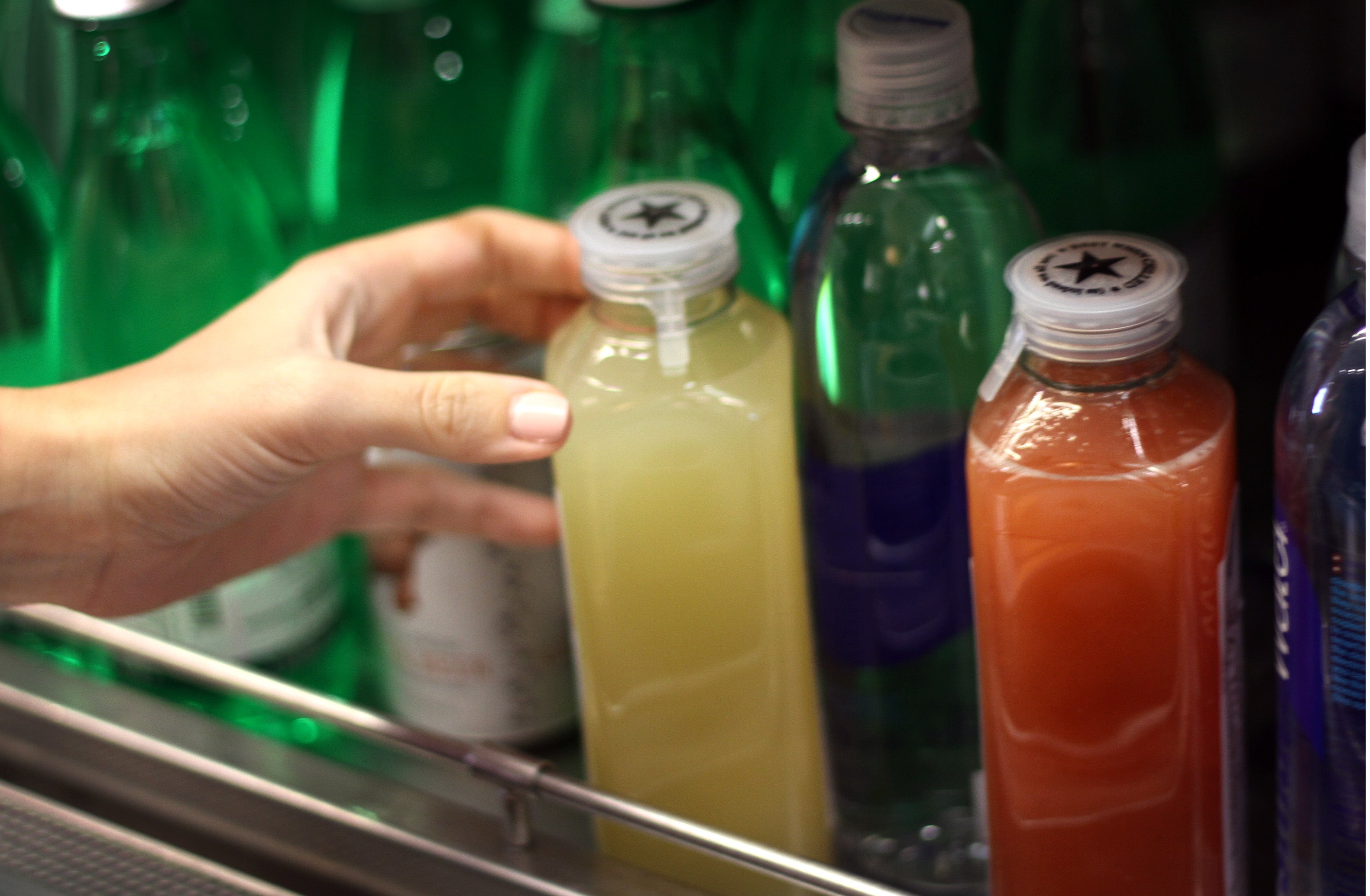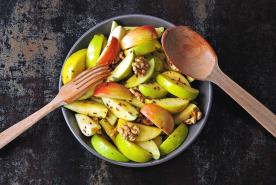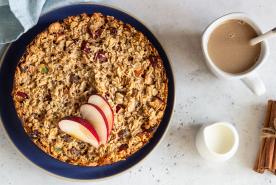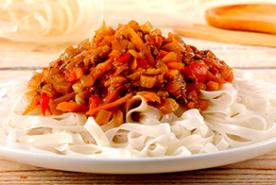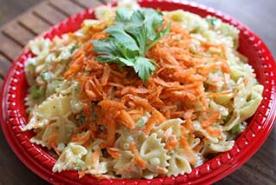September 29, 2014
By Linda Ulerich, RD
A diet rich in fruits and vegetables reduces the risk for heart disease and stroke, protects against certain types of cancer, and provides fiber which reduces the risk of obesity, type2 diabetes, and diverticulosis. Juicing is being touted as a way to lose weight and stay healthy, and while it may seem like a recent trend, juicing has been around for ages. As with anything related to diet, there are positives and negatives to weigh, especially when considering your kidneys.
Juicing Benefits
- Juicing can help ensure you get the vitamins and minerals you need without filling you up. Most adults should be eating about 1 ½ to 2 cups of fruits and 2-3 cups of vegetables a day, according to the United States Department of Agriculture (USDA). Liquefying your raw food can be a great way to get in the recommended amounts of fruits and vegetables.
- Juicing can also benefit kidney health by providing more fluid to help keep the body hydrated.
- The extra antioxidants from the fruits and vegetables used to make the juice help reduce inflammation caused by oxidation. Oxidation is a normal body process that occurs when oxygen in the body reacts with fats in the blood and cells in the body. Kidney disease causes more inflammation and thus, more oxidative damage to the body. So, juicing can help provide more antioxidants as well as some of the vitamins and minerals that may be lacking in patients with kidney disease, such as B6 and folic acid.
Join the NKF Blog Newsletter
Get inspirational stories and kidney disease resources delivered to your inbox every month. You'll gain practical insights and expert advice to help you better understand and manage your kidney health no matter where you are on your kidney journey. Subscribe today.
There Are Some Cautions
For ANYONE opting to use juicing in place of eating whole fruits and vegetables, there are also some disadvantages or cautions associated with it:
- You lose fiber. When the pulp of the fruit or vegetable is extracted during the juicing process the fiber is lost. Fiber creates more bulk in the stomach, curbing hunger and fiber reduces the likelihood of constipation.
- Fruit and vegetable juices are more concentrated in natural sugar content (called carbohydrates) than the whole fruit or vegetables; therefore, people with blood sugar problems must limit their intake of many fruit and vegetable juices due to this higher natural sugar content.
- Juicing is not meant to replace all meals for a long period of time, as it will not provide a balance of all the nutrients our bodies need.
- We miss out on the sheer enjoyment of eating—chewing satisfaction is lost when we drink our fruits and vegetables.
Additional cautions should be taken for those with decreased kidney function:
- People with normal kidney function do not have to limit fluids. For someone with decreased kidney function, fluids may need to be limited, making it difficult to use juicing as a way to get the recommended servings of fruits and vegetables.
- Certain nutrients may need to be limited because the kidneys cannot filter them from the body effectively. One example is potassium. Most juicing recipes contain fruits or vegetables that are high in potassium content: oranges, bananas, mangoes, strawberries, spinach, and tomatoes or tomato juice to name a few. One orange contains about 240 mg of potassium, but with juicing, 8 ounces of orange juice contains about 500 mg of potassium.
- Some juicing recipes use canned tomato or vegetable juice which can be high in sodium content. Many people with reduced kidney function must limit sodium intake.
- Many dark green vegetables such as spinach and kale provide lots of vitamin K which helps the blood clot. For a dialysis patient or someone taking blood thinners, a high dietary intake of vitamin K can lead to increased clotting of the blood. So, if you are thinking about juicing and you have decreased kidney function, you may wish to discuss it with your kidney doctor and/or dietitian first to make sure it is safe for your specific medical conditions. Your dietitian can help you choose the safest juicing recipes for your individual needs.
So, if you are thinking about juicing and you have decreased kidney function, you may wish to discuss it with your kidney doctor and/or dietitian first to make sure it is safe for your specific medical conditions. Your dietitian can help you choose the safest juicing recipes for your individual needs.
